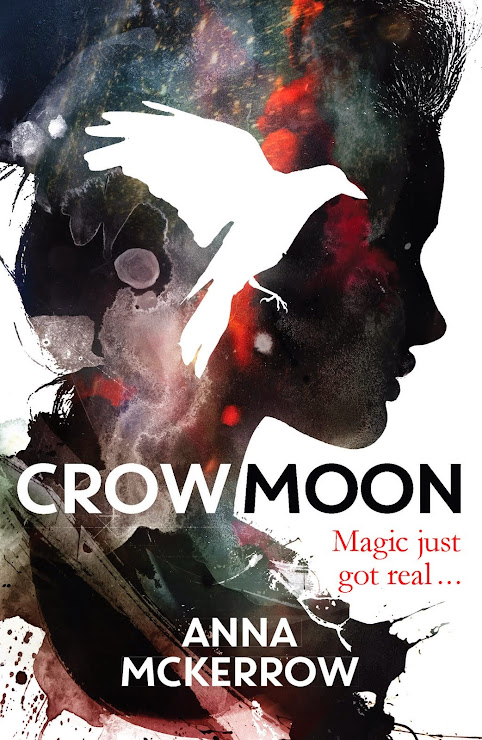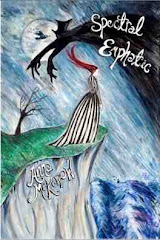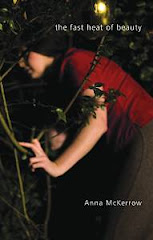You enjoyed my radio show last night, talking about Regressive Poetics with the smooth-voiced Ryan Ormonde, right? You weren't watching Germany decimate Brazil 7-1, right? No! Of course not. Here are my notes that accompany the programme which aired last night on 104.4FM, Resonance Radio. You can listen again on Saturday night at 7pm which is probably when the bloody World Cup final is on. I was born on Cup Final Day, you know. It haunts me.
The next episode, next Tuesday at 9pm, features the Manchester-based poet Richard Barrett talking about, among other things, his books A Big Apple and Hugz, and Peter Barlow's cigarette smoking technique.
What is Regressive Poetics about?
Past life accounts
translated via a digital medium. I liked the idea of an account of something
being relayed from another time, and to be able to explore the notion of
information being conveyed from “the other side”, ie past lives, or from people
that are dead via mediumship. Mediumship always has this kind of inaccuracy
about it. You see psychic mediums frowning and straining to get the right
message through, and they can describe it as if they are trying to hear something
very faint, or garbled. I think people remembering or re-experiencing their
past lives is somewhat similar, certainly dreamlike, where things assume a
symbolic importance rather than a literal one, or where things are alluded to,
or where language is odd or nonsensical, but it has an internal logic
within-the-dream. I was reading a book called Swan on a Black Sea which is an
account of a series of mediumistic communications from the early 20th
century where the medium describes the experience of conveying information as
somewhat of a mixed grill – meaning that information, or meaning, is
transmitted inefficiently from the spirit world to this one, and as well as
that, the information comes through the veil of the medium’s own biases, her
take on it. So what emerges is very often a mix of the original message, the
distortion and the intermediary’s own effect on the language or the message.
Her kind of hegemonic bias.
How does this book relate to your other poetry?
I am, overall, most
interested in the relationships between spiritual practices and poetics. In
2010 I published another processual book called Taropoetics, which was also a
durational work. I had dealt myself a spread of five tarot cards every week and
free-written, as much in a trance as possible, inspired by them – their images,
their associations, their juxtapositions. Like Italo Calvino in The Castle of
Crossed Destinies I thought the tarot was a good tool to investigate chance
procedures. After I had a year’s worth of writing I revisited the text and
shaped it into 52 individual poetic pieces.
So Regressive Poetics
takes a different type of spiritual experience – past life memory instead of
fortune telling, or spiritual introspection, and works with that narrative.
Both are ways to investigate the personal and both have their own kind of rules.
In terms of
presentation, I also used the forward slash that I had used as the only
punctuation in Taropoetics in RP, although the text is ordered differently and
not as uniformly as in TP. I like the forward slash as it has that sense of
onward motion, of distinction and cutting but also running together. So it
works really well for language where there are quite opposing statements or
thoughts, but they are joined together in one stream of consciousness kind of
effect. Both RP and TP have that characteristic.
What works inspired you to create this?
Both works draw on
Hannah Weiner’s Clairvoyant Journal and Susan Hiller’s Belshazzar’s Feast,
among other things. Both of those have a thematic similarity – trance and
clairvoyance – and I love Hannah Weiner’s jumbled, stream of consciousness
text. Like taking free writing to its furthest conclusion. Belshazzar’s Feast
is a film that aims to induce a sense of trance in the watcher and was
transmitted on normal TV – so different in not being text based, but
interesting because it’s aiming to provide a personal experience for the
watcher, that may be illuminative and unconscious and different for everyone.
In terms of durational
and process-based work I really also like Kenneth Goldsmith, I like that he has
that totality of approach and can work over long periods of time. If RP was
properly Goldsmith, though, it would be far more encyclopedic, like it would be
a definitive voyage into all of my past lives and the past lives of everyone I
knew, and he wouldn’t edit, he would just collate all the data, the language-data,
into one big book or website or something. Then he’d probably do something
clever with it like some performance art. Use it as an score for a happening or
something. Maybe I should do that.
How did you construct the poems?
I found a variety of past
life accounts, either published books or online, as well as online films of
people talking about their past lives. The printed accounts I read into a
digital dictation app that produces text, and the films I played directly into
the app. So for the films there was one less layer of interpretation, as
machine was talking to machine at that point.
I like to think of the
stages of the work as meat, spirit and digital. So for the accounts that were
read from books, you could look at it like:
Spirit (past life
memory) Meat (recount into book) Meat (read into app) Digital (app translates
and produces text) Meat (writer edits, adjusts, biased) Meat (printed in book)
Spirit (poem exists as new entity, in creative ether)
Whereas with the film
version, it’s Spirit-Digital-Meat-Meat-Spirit. It would be interesting to think
about how you could eradicate the meat element altogether, although I don’t
think you could. That’s the idea in Neuromancer, but as Stelarc points out, you
need embodiment to enable digital. At least at the moment.
What questions did you ask of the work? Did
anything surprise you?
I wanted to know how
much derangement I’d get using this method, whether it was a good way to do it,
or whether a manual cutup was better. And I wanted to know how something like a
digital dictation app would differ from pure cutup. And I also wanted to see if
anything truly enlightening or beautiful came out. Something that really reflected
the otherworldliness of a past life experience, that kind of symbolism of the
human experience, our spiritual destiny.
The app is quite
different to a pure cutup, actually cutting up every single word, mixing them
up in a bag and restringing it. Apart from the time restrictions for that
method (reading into an app is much quicker), the app adds something to the
source text. It changes it at source. A paper cutup can’t change the component
words or rewrite your sentences – it can’t mishear and creatively recreate a
sentence, changing perceived meaning and inference, which the dictation app
does. It produces sentences that make sense, even if as a whole document the
text doesn’t have a strong coherence. So that’s really interesting and
different.
In terms of surprise, I
didn’t know until I had read a few sections into the app how accurate it was
going to be. There’s a certain amount of derangement that I needed for this to
work, and it surprised me how inaccurate the dictation app was – which was a
good thing. Additionally, it has a strong emphasis on digital language in its
translation – so it often misheard words as web-language, so there are quite a
lot of sentences about websites and internets and such, which is really
interesting and presumably reflects a bias on the part of the app itself – a
kind of programming bias towards digi-speak. I really like that. I like that
there are lines like:
I feel strange, like I’m not acknowledged in internet
intranets
like with a
nice Ethernet-like portrait reading
without
upsetting the 1950s into cookies.
He leads to
me as inbox
The
protected server is group of action.
and
deterrent is dead/inside this ritual/burning in a past life online
The very first lines of
text are a kind of meditation on the body and digital – meat and digital.
click here
to request the inter body/performance is when the secret details are only
electric/not
limited to stain the body/intended from the body/follow those ranges
across distance –
and there’s
this section in The Protected Server is a Group of Action
The canine
women in prison make your body. These people appear to have all your
connections and have blood connections and laptops of things.
and in Omm
Sety there is this great section where the online is conflated with the
spiritual space, and I think that’s a really interesting comparison.
She
inserted the first meeting regularly, so totally astral plane, and occasionally
Henry materialised my website on the bed, and
then she was transferred.
I think
there are also passages that have a surprising lyricism to them:
question/I
found it very distasteful to think I could have one tiny
penis/she
was so decided to forget about her and focus on my music limitation
hygienist/wicked
dreams of myself stuck in watching women being beheaded in
front of me/until the dreams began picking the
recurrence of the streams –
I also like
that there are several references to the nature of language itself:
evenings are spent in feasting a music-making
free Celtic language of symbols
She wrote
her father excitedly, declaring this is my hand this is where I'm still
here
otherwise
all broken.
What will you do next?
I am working
on another durational project which is another year’s raw text generation, but
I don’t know what I’ll do with it yet.





